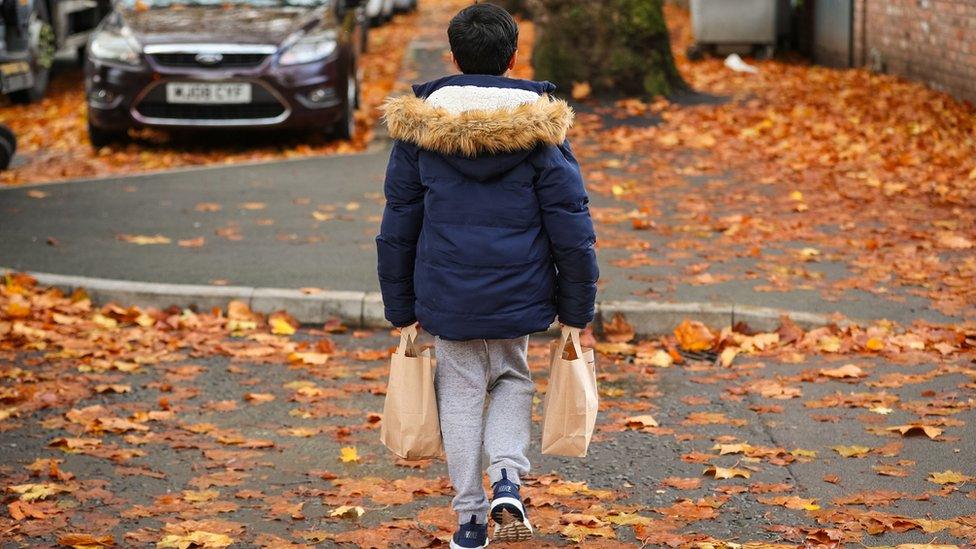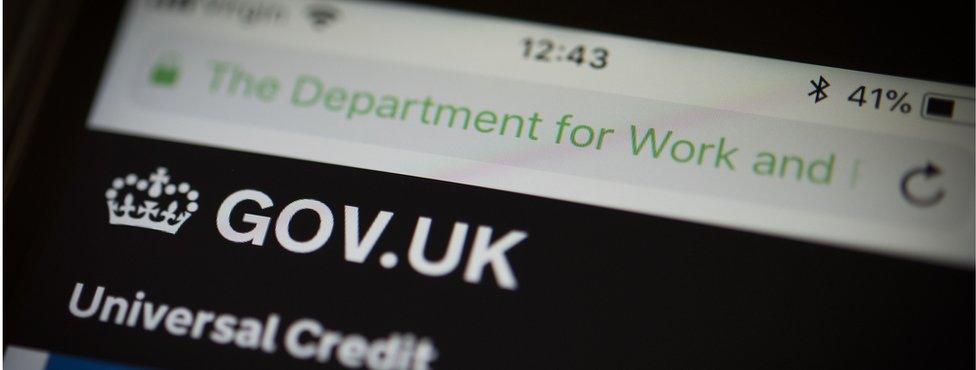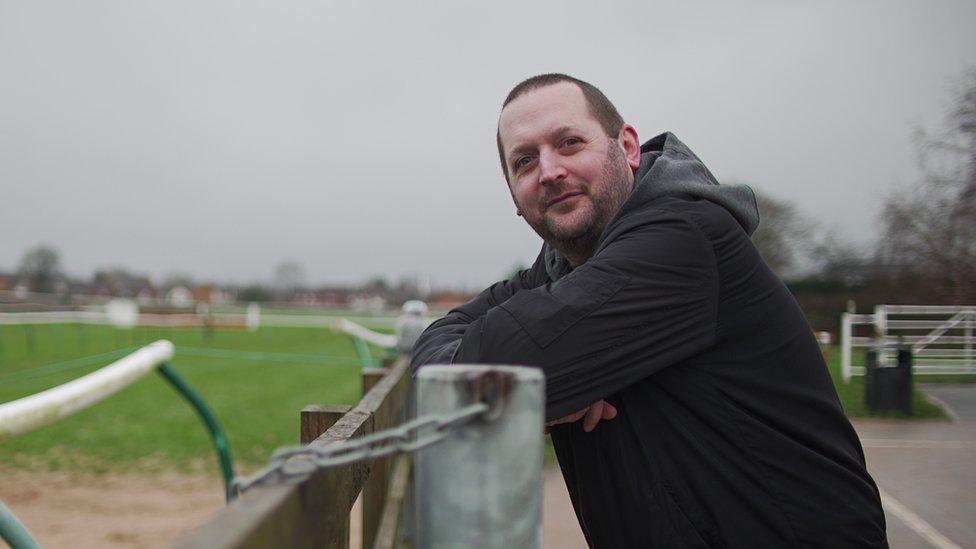Don't replace benefit top-up with lump sum, says Therese Coffey
- Published

The work and pensions secretary has advised against replacing a £20 weekly benefits increase with a one-off payment.
The universal credit top-up, introduced as a temporary measure during the Covid pandemic, is due to end in April.
Therese Coffey said replacing it with a lump-sum payment is among options being discussed by ministers.
But she said this was not her department's "preferred approach" and could be complex to deliver.
She added that one-off payments could also carry a fraud risk, whilst is was also unclear how long the economic downturn caused by the pandemic would last.
The government is facing pressure from opposition parties and some of its own MPs for the top-up to be extended beyond its scheduled 31 March end-date.
Speaking to the Commons Work and Pensions Committee, Ms Coffey said discussions were "still ongoing" with other government departments about the future of the top-up.
Asked about the possibility of one-off payments of £500 or £1,000, she replied: "I am aware of that idea being raised. It's still a level of financial support for people that is welcome.
'Lot of complexity'
"But that would not be one of the department's preferred approaches on providing that financial support…we are just not sure that's the best way to deliver that."
She told MPs a "steady sum of money" would be more likely to help claimants budget, whilst administering the payments would bring "quite a lot of complexity".
But she added: "I wouldn't say no to a one-off payment if in the end that is the decision that was taken, because it still would be financial support."

Analysis by Damian Grammaticas, BBC political correspondent
What to do when the current £20 a week top-up is due to come to an end appears to be pitting government departments against one another.
Therese Coffey suggested the issue is not whether support will be given, saying ministers "recognised the need to continue to support people".
The issue at the heart of things is how much the government is willing to pay, and how long will any support last?
The Treasury is resistant to signing up to any open-ended commitment given that the current cost is put at around £6bn a year.
That's why the idea of a one-off payment, of maybe £500 or £1,000 has been floated. But it seems the argument isn't over yet.

Poverty campaign charity the Joseph Rowntree Foundation says 500,000 more people will be driven into poverty if the temporary £20 top-up is rolled back.
However, the Institute for Economic Affairs think tank has argued that "across-the-board benefit increases are a wasteful use of taxpayers' money".
Last month six Conservative MPs joined opposition parties in calling for the £20 weekly top-up to continue for an unspecified period beyond March.
Labour's shadow work and pensions secretary Jonathan Reynolds said replacing the top-up with a one-off payment meant those in need of support "will fall through the gaps".
"We urge [Ms Coffey] to stand up to Rishi Sunak, give certainty to families and secure our economy by cancelling the cut to universal credit," he added.

What is universal credit?

Universal credit is a single payment replacing old benefits such as housing benefit and child tax credits.
You can claim universal credit if you are on a low income or are out of work.
The standard allowance varies from around £340 to just under £600 a month, depending on your age or whether you are single.
You may be eligible to receive more money on top of the standard allowance if, for example, you have children or a health condition.

Related topics
- Published13 January 2021

- Published13 May 2024
